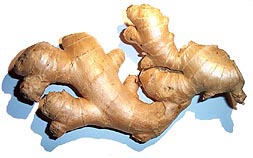Bioenhancer
Bioenhancer is a term used to describe substances that enhance the efficacy or availability of drugs or nutrients, leading to improved absorption and effectiveness. These substances can be of natural origin, such as certain herbs and spices, or synthetic. Bioenhancers work through various mechanisms, including enhancing solubility, improving permeability, inhibiting drug-metabolizing enzymes, and modulating drug transporters. Their use is particularly significant in the field of pharmacology and nutraceuticals, where they can help in reducing dosage, side effects, and treatment costs.
Mechanisms of Action[edit | edit source]
Bioenhancers operate through several mechanisms to exert their effects:
- Enhancing Solubility: Some bioenhancers can increase the water solubility of drugs, which is crucial for their absorption in the digestive system.
- Improving Permeability: By modulating the tight junctions between the cells in the intestinal lining, bioenhancers can improve the permeability of drugs.
- Inhibiting Drug-Metabolizing Enzymes: Certain bioenhancers can inhibit enzymes like cytochrome P450, which metabolizes drugs, thereby increasing their bioavailability.
- Modulating Drug Transporters: Bioenhancers can also affect the activity of drug transporters, which play a role in the absorption and distribution of drugs.
Examples[edit | edit source]
Some well-known bioenhancers include:
- Piperine: Found in black pepper, piperine is one of the most studied bioenhancers. It has been shown to enhance the bioavailability of various drugs and nutrients.
- Curcumin: A compound in turmeric, curcumin can increase the absorption of certain drugs by modulating metabolic enzymes and drug transporters.
- Quercetin: A flavonoid present in many fruits and vegetables, quercetin can improve the bioavailability of some drugs by inhibiting certain drug-metabolizing enzymes.
Applications[edit | edit source]
Bioenhancers have a wide range of applications in medicine and nutrition:
- Pharmaceuticals: In the pharmaceutical industry, bioenhancers are used to improve the efficacy of drugs, allowing for lower doses and potentially reducing side effects.
- Nutraceuticals: In the field of nutraceuticals, bioenhancers can enhance the absorption and effectiveness of vitamins, minerals, and other nutrients.
- Traditional Medicine: Many traditional medicine systems, such as Ayurveda, have long used bioenhancers in the form of certain herbs and spices to improve the efficacy of herbal remedies.
Challenges and Considerations[edit | edit source]
While bioenhancers offer significant benefits, their use also presents challenges. The interaction between bioenhancers and drugs can sometimes lead to unexpected side effects or toxicity. Therefore, thorough research and clinical trials are essential to ensure their safe and effective use. Regulatory approval processes also need to consider the combined effects of drugs and bioenhancers.
Future Directions[edit | edit source]
Research on bioenhancers is expanding, with scientists exploring new substances and combinations to enhance drug efficacy and nutrient absorption. The development of novel bioenhancers has the potential to revolutionize the fields of pharmacology and nutraceuticals, offering more effective and personalized treatment options.
Search WikiMD
Ad.Tired of being Overweight? Try W8MD's physician weight loss program.
Semaglutide (Ozempic / Wegovy and Tirzepatide (Mounjaro / Zepbound) available.
Advertise on WikiMD
|
WikiMD's Wellness Encyclopedia |
| Let Food Be Thy Medicine Medicine Thy Food - Hippocrates |
Translate this page: - East Asian
中文,
日本,
한국어,
South Asian
हिन्दी,
தமிழ்,
తెలుగు,
Urdu,
ಕನ್ನಡ,
Southeast Asian
Indonesian,
Vietnamese,
Thai,
မြန်မာဘာသာ,
বাংলা
European
español,
Deutsch,
français,
Greek,
português do Brasil,
polski,
română,
русский,
Nederlands,
norsk,
svenska,
suomi,
Italian
Middle Eastern & African
عربى,
Turkish,
Persian,
Hebrew,
Afrikaans,
isiZulu,
Kiswahili,
Other
Bulgarian,
Hungarian,
Czech,
Swedish,
മലയാളം,
मराठी,
ਪੰਜਾਬੀ,
ગુજરાતી,
Portuguese,
Ukrainian
Medical Disclaimer: WikiMD is not a substitute for professional medical advice. The information on WikiMD is provided as an information resource only, may be incorrect, outdated or misleading, and is not to be used or relied on for any diagnostic or treatment purposes. Please consult your health care provider before making any healthcare decisions or for guidance about a specific medical condition. WikiMD expressly disclaims responsibility, and shall have no liability, for any damages, loss, injury, or liability whatsoever suffered as a result of your reliance on the information contained in this site. By visiting this site you agree to the foregoing terms and conditions, which may from time to time be changed or supplemented by WikiMD. If you do not agree to the foregoing terms and conditions, you should not enter or use this site. See full disclaimer.
Credits:Most images are courtesy of Wikimedia commons, and templates, categories Wikipedia, licensed under CC BY SA or similar.
Contributors: Prab R. Tumpati, MD




